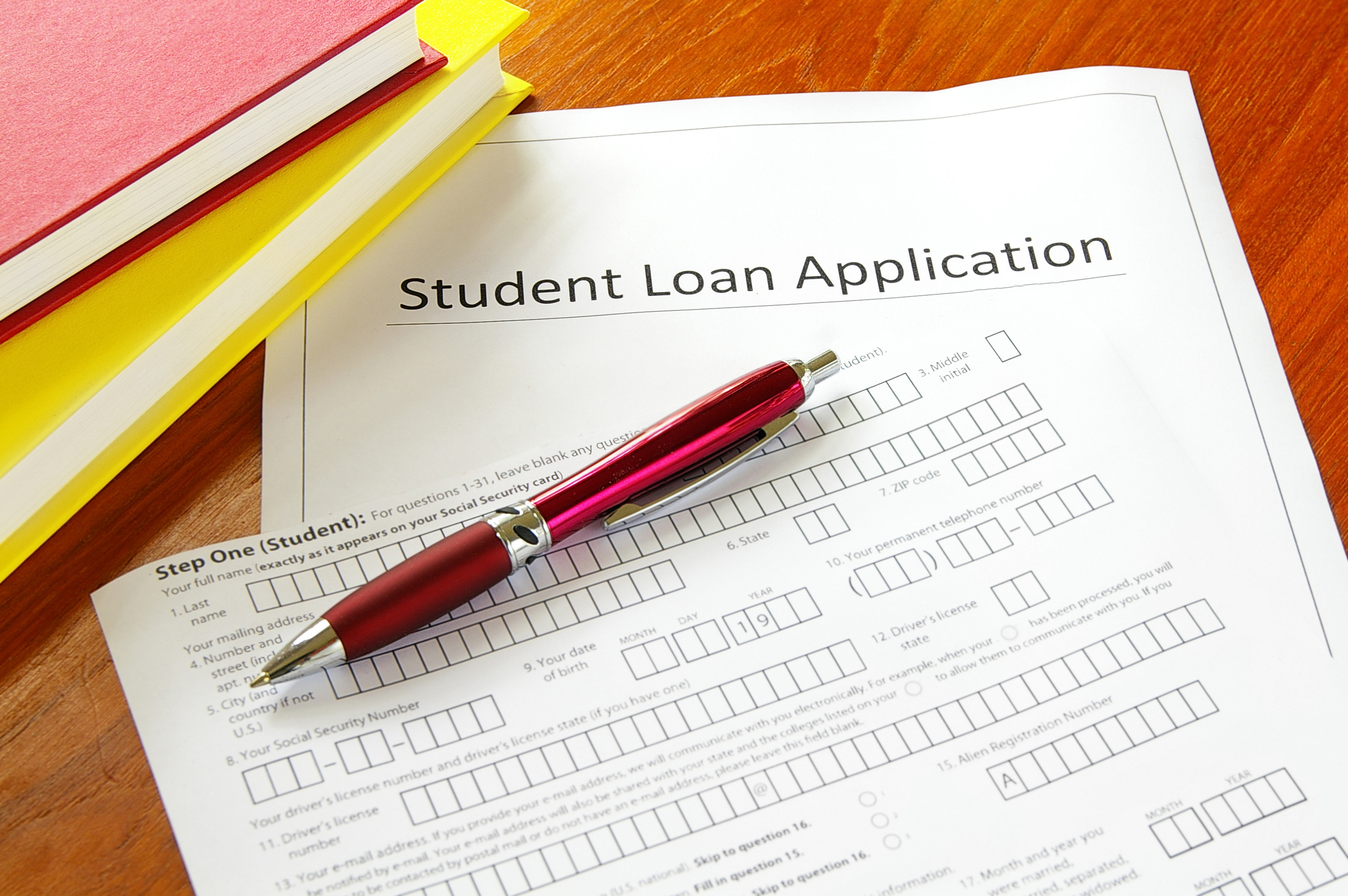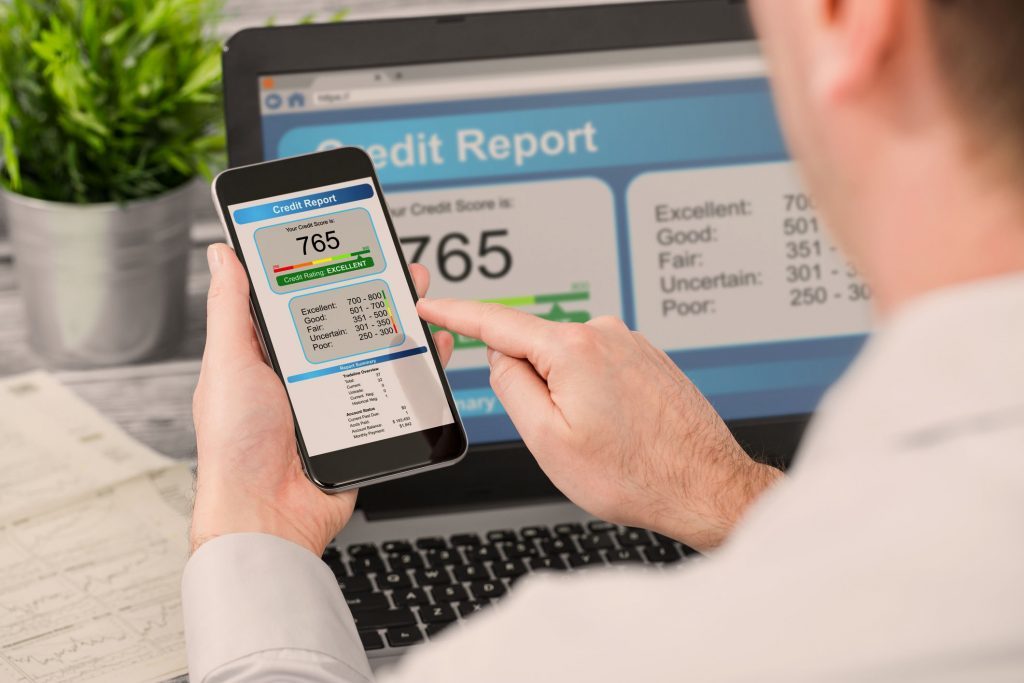In this Post:
- An Overview of Student Loans
- Applying for Student Loans
- Student Loans and Your Credit Report
- What About Deferred Student Loans?
- Benefits of Student Loans
- Student Loans and Building Credit
- Early Payments – Yes or No?
- Student Loan Conclusions
Let’s face it — college isn’t cheap.
Unless of course your parents saved a bunch of money for you or you scored a ton of scholarship money, it’s likely you’re going to need a bit of help paying for college.
The good news?
There are student loans out there that can help cover your education and make sure you don’t miss out on college.
The bad news?
Student loans are still a form of debt, and yes, you have to pay every cent back, with interest.
Student Loans: What You Need to Know
If you are reading this, you’re likely wondering how does a student loan work, exactly?
Student loans are a sum of money that you borrow to cover educational expenses like:
- tuition
- room and board
- books
There are two types of student loans:
- Federal and
- Private
“Federal student loans” are offered through the U.S. Department of Education.
On the other hand, “private student loans” come from places like banks or other financial institutions.
A student can apply for both a federal or private student loan,
and in some cases, both, in order to cover the cost of college.
How to Apply for Student Loans
Getting a student loan can differ, depending on where you are getting the student loans. It can come from either:
- The federal government
- Private financial institution
If you apply for student loans from the federal government, you will submit a Free Application for Federal Student Aid (FAFSA).
For federal student loans, you will need information about your family’s income which may affect what type of financial aid you will be given. And your credit score will not play such a big role in the approval process.
Applying for student loans from a private financial institution will be closer to the process for a conventional loan. Private student loan lenders will require a credit check. Which might be problematic for you if you have bad or no credit.
If you’re fresh out of high school, it’s likely you don’t have a credit history. If you’re an adult who has bad credit and looking to go back to school, you might be wondering how this affects you if you apply for student loans.
First, some good news: Many federal student loans do not require a credit check. So, if you have no credit or bad credit, you will likely be eligible for federal funding.
Yay!
Here’s the bad news, though. Sometimes your federal student loans don’t cover everything.
It’s always recommended to apply for federal student loans first and take out what you can to cover costs, as these loans have fixed interest rates and good repayment terms.
But if you can’t cover all of your costs with federal student loans, you’ll need additional funding.
Enter private student loans.
Since private student loans are given out by private lenders and not the U.S. government, they have their own set of credit qualifications. These lenders want to know you can afford to take on a loan in the first place and that you’ll be able to pay it back.
So, what can you do if you have no credit or bad credit? If that’s the case, you may need to get a co-signer. A co-signer is someone that is held responsible for the loan in case the primary borrower fails to make payments.
It’s not something that should be taken lightly but having a co-signer can help you get approved for a private student loan and potentially score a lower rate.
It’s just important to be aware of the legal consequences if you don’t pay back your loans, mom or dad, or grandma—or whoever is your co-signer—is liable for that debt.
Student Loans Can Impact Your Credit Score
Student loans are considered installment loans. In other words, it’s a type of loan that gets paid back in installments, such as monthly payments, for a specific period of time.
This differs from revolving credit, like credit cards, where how much you can “borrow” is revolving, based on how much you pay back each month. Therefore the installment student loan does show up on your credit report.
Your credit report shows your credit history, including your student loan payments. So, if you’re wondering, "Can student loans affect my credit score?" Yes they can, for better or worse, as they do show up on your credit report.
Deferred Student Loans Can Also Impact Your Credit
Your lender may approve you to defer a student loan. This is a process that is used to postpone making payments on your student loan for a period of time, under certain circumstances like:
- disability
- parental leave
- public service
The answer to “Will deferring my student loan affect my credit?” is not so clear cut. While officially according to FICO you can carry a deferred loan for years and it doesn't affect your credit, Scored Credit™ has seen instances where people did see a drop in their credit after a deferral of their student loan. A very possible explanation to this is because once the loan is being deferred, it is lacking the positive impact that making continuous on-time payments have on your credit score. While the non-payment isn’t bad, it still lacks the positivity that was carried as long as the payments were made.
The Good News About Student Loans
The answer is, yes, absolutely.
The good news is that if you take out student loans and make your payments on time, it can help you establish and build credit.
On the other hand, if you don’t make your payments on time or your loans become delinquent, your credit will take a hit.
So, it all comes down to your repayment history. You want to make sure you stay in good standing with your student loans and make your payments on time, every time in order to build credit with student loans.
Scored Credit™ always recommends adding a credit card to the mix may help your credit too. Your credit mix—or the various types of debt you have—contributes to your credit score.
having installment loans and revolving credit can lead to a ‘balanced’ credit portfolio.
Just remember the number one rule: Make all your payments on time!
How Student Loans Factor into Building Credit
Well, it depends 😉
On one hand, student loans, when paid on time, are a very positive factor as they usually have a lot of age. As soon as you pay it off, you will lose this positivity.
On the other hand, if you don’t need to go back to school or really want to pursue a degree, then taking out a student loan just to increase your credit score isn’t a wise idea.
If you don’t need to, then why take on unnecessary debt?
Also, when applying for credit, your debt-to-income ratio may come into play and if you have a lot of debt and a low income, in this case your student loans could actually hurt you.
Are Early Student Loan Payments Good for Building Credit?
After you graduate, you may want your student loans off your back—
like yesterday. If you can pay off your student loans before your repayment period ends, that’s great!
But this is not really a credit-building move.
If you want to build credit with student loans, paying them off early won’t work in your favor.
In fact, your credit score may drop just a few points when your student loans are paid off because your accounts will be closed after they’re paid off. The age of your accounts can affect your credit, so when they’re closed you can lose a bit of that history.
Not fun, I know.
We have seen from our experience.
Student Loan Tips to Remember
Student loans can be a necessary part of your educational journey. They’re not fun to pay back.
But, when used the right way, they can help put your credit on the map.
If you have no credit or bad credit, it is possible to build credit with student loans. Just be smart, pay them back, and you’ll be set.
While a student loan is a solid way to build and maintain good credit, check out these articles on other ways to build credit.




